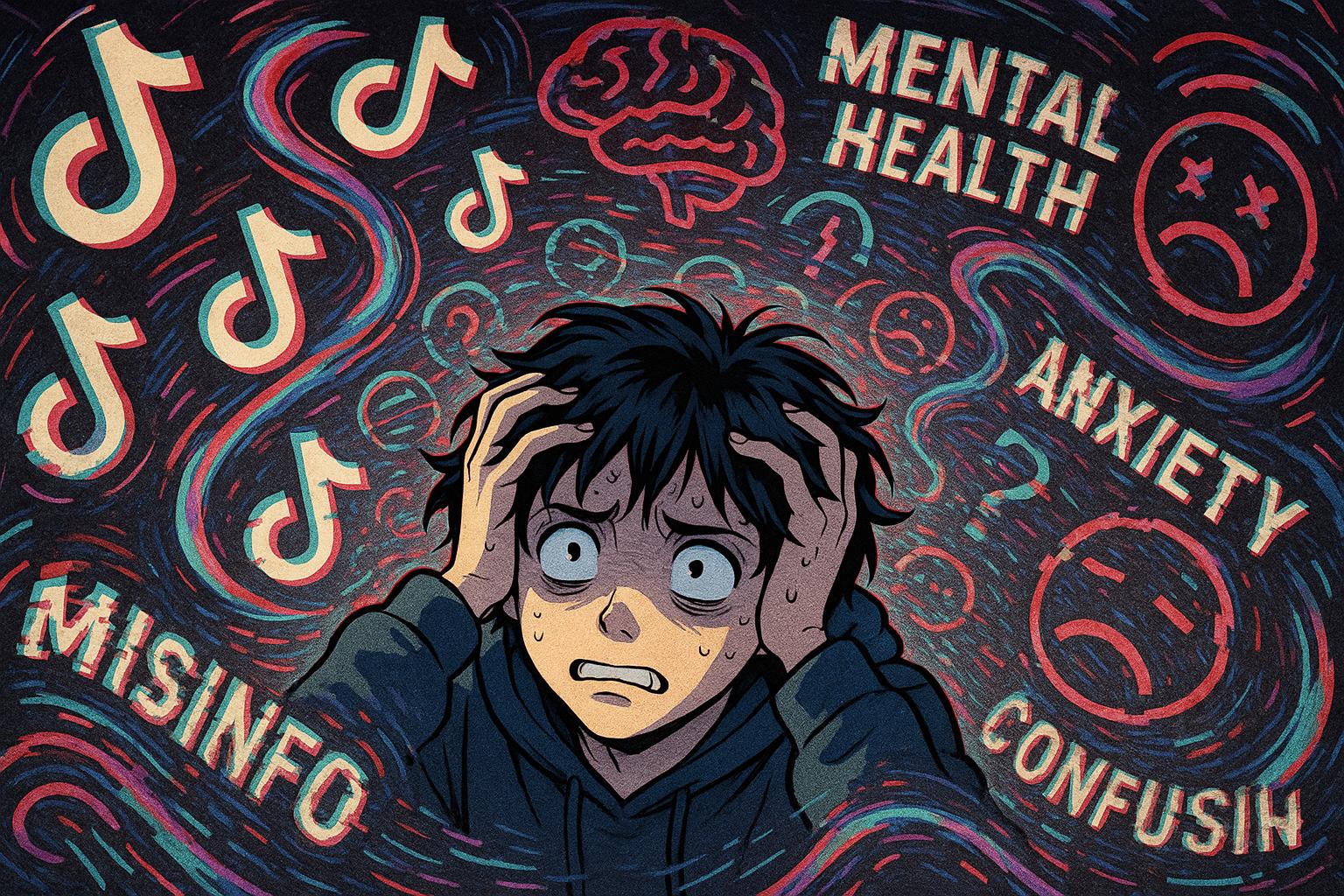Every day, millions of users turn to TikTok not just for entertainment but increasingly for advice on mental health issues. However, a recent investigation has revealed a concerning trend: more than half of the most popular videos tagged with #mentalhealthtips contain misleading or inaccurate information. This alarming finding raises fundamental questions about the reliability of mental health advice broadcast on social media platforms.
The analysis, undertaken by The Guardian and scrutinised by a board of qualified mental health professionals, found that of the top 100 videos surveyed, 52 provided advice riddled with misinformation, unrealistic suggestions, and oversimplified narratives about complex mental health conditions. Common recommendations included bizarre practices—such as eating oranges in the shower to manage anxiety—and promoting unverified supplements like saffron and magnesium. What’s particularly troubling is the way these videos often conflate ordinary emotional experiences with severe mental health disorders, distorting the public’s understanding of mental health.
Dr. David Okai, a consultant neuropsychiatrist at King’s College London, commented on the pervasive misuse of psychological terminology in these videos, noting that terms like "wellbeing," "anxiety," and "mental disorder" are frequently blurred together. He emphasised that this misuse can lead to serious misunderstandings about clinical mental health diagnoses. "Advice based on individual experience is not necessarily safe or effective for everyone," he remarked, urging viewers to approach such content with caution.
As mental health concerns permeate everyday life, additional concerns arise regarding the trivialisation of serious issues. Dr. Dan Poulter, a former UK health minister and practising psychiatrist, highlighted that many TikTok videos interpret everyday emotions such as sadness or anger as symptoms of severe psychological conditions. This trend risks misleading vulnerable individuals, encouraging them to self-diagnose and potentially delay seeking proper help.
Experts warn that the oversimplification of complex subjects like trauma can generate a false sense of understanding. Amber Johnston, a psychologist accredited by the British Psychological Society, pointed out that trauma and PTSD are deeply personal experiences yet are often depicted in overly broad and generic terms. "These clips suggest everyone experiences them the same way—and that healing can be found in a 30-second video," she noted, emphasising that such simplification can leave viewers feeling unsupported and ashamed when the presented advice proves ineffective.
These findings have resonated with UK lawmakers, prompting calls for regulatory actions. Chi Onwurah, Labour MP and chair of the Technology Committee, stated that the Online Safety Act must be empowered to control algorithms that prioritise harmful content. “Platforms like TikTok are designed to recommend emotionally engaging posts, which often means misleading content spreads faster,” she explained. Fellow MP Victoria Collins echoed this sentiment, labelling the report “damning” and urging immediate measures to safeguard especially younger users from mental health misinformation.
In response to these criticisms, TikTok has defended its platform, asserting that it allows users to share authentic experiences and support each other. A spokesperson from the company claimed that 98% of harmful content is removed proactively and noted their collaboration with the World Health Organization and the NHS to promote reliable mental health resources. They also mentioned that users searching for mental health-related terms are redirected to official NHS information pages.
Despite TikTok’s assurances, many experts agree that social media should not be viewed as a substitute for professional care. Professor Bernadka Dubicka of the Royal College of Psychiatrists reiterated that while discussions about mental health on social media can be beneficial, concrete diagnoses and treatment plans must originate from qualified professionals. “While awareness is good, it’s not enough,” she stated, highlighting the necessity for access to evidence-based information and robust support systems.
As the conversation around mental health continues to evolve, TikTok stands at the nexus of engagement and misinformation. Users are thus urged to digest this content thoughtfully, remaining vigilant and discerning as they navigate mental health topics in the feverish landscape of social media.
Reference Map:
- Paragraph 1 – [1], [2]
- Paragraph 2 – [1], [2], [6]
- Paragraph 3 – [2], [4]
- Paragraph 4 – [1], [3]
- Paragraph 5 – [1], [5]
- Paragraph 6 – [1], [6], [7]
- Paragraph 7 – [1], [5]
- Paragraph 8 – [2], [3]
Source: Noah Wire Services
